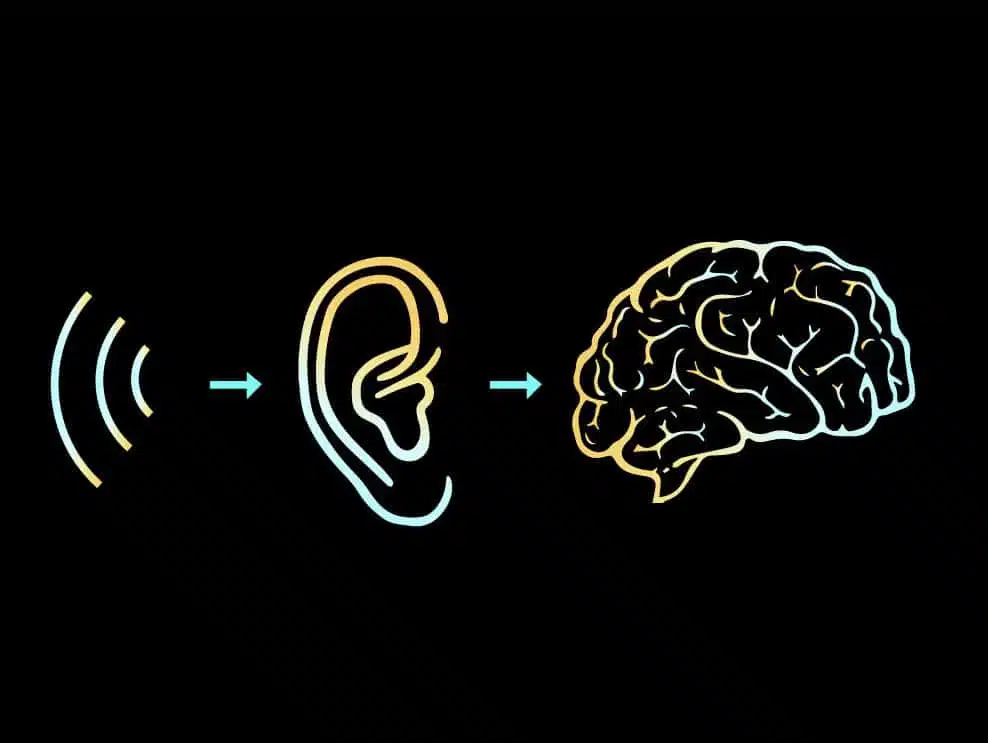Weed & Auditory Memory
Welcome to another exciting topic in the world of cannabis! In this article, we will explore the fascinating relationship between weed and auditory memory. As we delve into this subject, we’ll discover how different strains of weed can impact our ability to remember and process auditory information. So, grab your favorite strain, sit back, and let’s dive into the world of weed and auditory memory!
What is Auditory Memory?
Auditory memory refers to the ability to retain and recall auditory information. It involves the storage and retrieval of sounds, such as spoken words, music, or other auditory stimuli. Just like visual memory involves remembering images and visual details, auditory memory focuses on remembering and processing sounds.
Auditory memory plays a crucial role in various aspects of our daily lives. For example, it helps us understand and follow conversations, remember instructions, recognize familiar voices or sounds, and appreciate music. It also contributes to language development and learning, as it allows us to remember and comprehend spoken words and sentences.
There are different types of auditory memory, including short-term and long-term auditory memory. Short-term auditory memory refers to the ability to hold and manipulate auditory information in our minds for a brief period, such as remembering a phone number long enough to dial it. Long-term auditory memory, on the other hand, involves the storage and retrieval of auditory information over an extended period, allowing us to remember melodies, lyrics, or other auditory experiences from the past.
The capacity and efficiency of auditory memory can vary among individuals and can be influenced by various factors, including genetics, age, attention, and cognitive abilities. Some people may have a natural aptitude for remembering and processing sounds, while others may struggle with auditory memory tasks.
Understanding the relationship between weed and auditory memory can provide insights into how cannabis may affect our ability to retain and recall auditory information. By exploring the effects of different strains on auditory memory, we can gain a better understanding of how cannabis impacts our auditory experiences.
The Effects of Different Strains on Auditory Memory
When it comes to weed, not all strains are created equal. Each strain has its unique combination of cannabinoids, terpenes, and other compounds that contribute to its distinct effects. Some strains may enhance auditory memory, while others may have a more neutral or even negative impact. Let’s take a closer look at a few popular strains and their effects on auditory memory.
1. Blue Dream
Blue Dream is a sativa-dominant strain known for its uplifting and energizing effects. It can enhance focus and creativity, making it a popular choice for artists and musicians. When it comes to auditory memory, Blue Dream may improve the ability to remember and process sounds, making it an excellent companion for music lovers.
2. OG Kush
OG Kush is an indica-dominant strain famous for its relaxing and sedating properties. While it may not directly enhance auditory memory, its calming effects can create a conducive environment for better focus and concentration. This, in turn, can indirectly improve auditory memory by reducing distractions and promoting a more attentive state.
3. Sour Diesel
Sour Diesel is a sativa-dominant strain known for its energizing and uplifting effects. It can boost mood and increase mental clarity, which can be beneficial for auditory memory. By promoting a positive state of mind and sharpening cognitive function, Sour Diesel may enhance the ability to retain and recall auditory information.
4. Purple Kush
Purple Kush is an indica strain renowned for its potent relaxation and sedative properties. While it may not directly impact auditory memory, its calming effects can help reduce stress and anxiety, creating a more conducive environment for better memory retention and recall.
5. Jack Herer
Jack Herer is a sativa-dominant strain named after the renowned cannabis activist. It is known for its uplifting and energizing effects, making it a popular choice for daytime use. By promoting alertness and mental clarity, Jack Herer may enhance auditory memory and the ability to process and remember sounds.
Why Memory is Important
Memory is important for several reasons:
-
Learning and Education: Memory allows us to acquire new knowledge and skills. It enables us to remember facts, concepts, and information that we learn in school or through personal experiences. Without memory, we would not be able to retain and apply what we have learned, hindering our ability to grow intellectually.
-
Daily Functioning: Memory is crucial for our day-to-day activities. It helps us remember important tasks, appointments, and responsibilities. For example, remembering to attend a meeting, complete assignments, or pay bills on time relies on our memory abilities. Without memory, we would struggle to navigate through our daily lives efficiently.
-
Personal Identity: Memory plays a significant role in shaping our personal identity. It allows us to remember our past experiences, relationships, and achievements. Our memories contribute to our sense of self and help us establish a coherent narrative of our lives. Losing memory can lead to a loss of personal identity and a sense of disorientation.
-
Problem-Solving and Decision Making: Memory aids in problem-solving and decision-making processes. It allows us to recall past experiences and outcomes, helping us make informed choices and avoid repeating past mistakes. Memory enables us to draw on past knowledge and experiences to find solutions to current problems.
-
Social Interactions: Memory is essential for maintaining social relationships. It helps us remember faces, names, and personal details about others, allowing for meaningful connections and interactions. Remembering shared experiences and conversations strengthens bonds with family, friends, and colleagues.
-
Safety and Survival: Memory plays a crucial role in our safety and survival. It helps us remember dangerous situations, learn from past mistakes, and avoid potential risks. For example, remembering that touching a hot stove causes pain prevents us from repeating the action and protects us from harm.
Losing our memory can have significant impacts on our lives. Here are some potential consequences of memory loss:
-
Difficulty with Daily Functioning: Memory loss can make it challenging to perform everyday tasks. Simple activities like remembering appointments, taking medication on time, or even recalling where we put our belongings can become difficult or impossible.
-
Strained Relationships: Memory loss can strain relationships with family, friends, and loved ones. Forgetting important events, names, or conversations can lead to misunderstandings, frustration, and feelings of neglect. It can be challenging for others to understand and adapt to the changes in memory function.
-
Loss of Independence: Memory loss can result in a loss of independence. It may become necessary to rely on others for assistance with tasks that were previously manageable. This can lead to feelings of helplessness and a loss of autonomy.
-
Emotional Impact: Memory loss can have a significant emotional impact. It can lead to feelings of confusion, frustration, and anxiety. Losing memories of significant life events or cherished moments can cause sadness and grief. It can also contribute to a sense of identity loss and a feeling of disconnection from one’s past.
-
Impaired Cognitive Functioning: Memory loss is often accompanied by other cognitive impairments. This can include difficulties with attention, problem-solving, decision-making, and learning new information. These cognitive challenges can further impact daily functioning and overall quality of life.
-
Safety Concerns: Memory loss can pose safety risks. Forgetting to turn off appliances, lock doors, or take necessary medications can lead to accidents or health complications. It may be necessary to implement safety measures or rely on caregivers to ensure personal safety.
It’s important to note that memory loss can occur for various reasons, including age-related cognitive decline, medical conditions like Alzheimer’s disease or dementia, brain injuries, or certain medications. If you or someone you know is experiencing memory loss, it’s crucial to seek medical attention to determine the underlying cause and explore potential treatment options.
Overall, memory is vital for our cognitive functioning, personal development, and overall well-being. It allows us to learn, adapt, make decisions, and navigate through life effectively. Without memory, our ability to learn, function, and maintain our personal identity would be severely compromised.
The Impact of Sound
Sound is important for humans for several reasons:
-
Communication: Sound is a primary mode of communication for humans. We use spoken language to convey thoughts, ideas, and emotions to others. Sound allows us to express ourselves, share information, and connect with one another.
-
Understanding the Environment: Sound provides us with valuable information about our surroundings. We can perceive and interpret sounds to understand the location, distance, and movement of objects or events. For example, we can hear the sound of a car approaching and use that information to safely cross the road.
-
Music and Art: Sound is a fundamental element of music and art. It allows us to appreciate and create melodies, rhythms, and harmonies. Music has the power to evoke emotions, inspire creativity, and bring people together.
-
Warning and Safety: Sound serves as a warning system, alerting us to potential dangers or threats. We rely on sounds like alarms, sirens, or warning calls to stay safe and respond appropriately in emergency situations.
-
Emotional Impact: Sound has a profound impact on our emotions. Certain sounds can evoke feelings of joy, sadness, excitement, or relaxation. Music, in particular, has the ability to elicit strong emotional responses and can be used as a form of therapy or self-expression.
-
Cognitive Development: Sound plays a crucial role in cognitive development, especially in language acquisition. Babies and young children listen to and imitate sounds, which helps them learn and develop their language skills. Sound also stimulates brain activity and can enhance cognitive functions such as memory, attention, and problem-solving.
In summary, sound is essential for human communication, understanding the environment, artistic expression, safety, emotional well-being, and cognitive development. It enriches our lives and allows us to connect with the world around us.
Information Retention & Weed
The effects of weed on retaining information can vary from person to person and depend on various factors, including the strain of weed, dosage, and individual sensitivity. Here are a few ways in which weed may potentially help with retaining information:
-
Enhanced Focus: Some individuals report that certain strains of weed can improve focus and concentration, which can aid in retaining information. By reducing distractions and promoting a more attentive state, weed may help individuals better absorb and remember information.
-
Relaxation and Stress Reduction: Weed, particularly strains with calming properties, can help reduce stress and anxiety. When we are relaxed, our minds are more receptive to learning and retaining information. By creating a calm and relaxed state, weed may facilitate the retention of information.
-
Heightened Sensory Perception: Cannabis can enhance sensory perception, including auditory and visual experiences. This heightened perception may allow individuals to pay closer attention to details and better remember information.
-
Increased Creativity: Some individuals find that weed can enhance their creativity and problem-solving abilities. This creative mindset may aid in retaining information by allowing individuals to approach learning in unique and innovative ways.
-
Neuroprotective Effects: Certain cannabinoids found in weed, such as CBD, have been studied for their potential neuroprotective properties. These properties may help protect brain cells and support overall cognitive function, including memory retention.
It’s important to note that the effects of weed on retaining information can vary, and excessive use or high doses may have the opposite effect and impair memory. Additionally, individual responses to weed can differ, so it’s essential to understand your own body and tolerance. If you’re considering using weed to help with retaining information, it’s always best to start with low doses, observe how it affects you, and consult with a healthcare professional for personalized advice.
Conclusion
In conclusion, the relationship between weed and auditory memory is a complex and multifaceted one. Different strains can have varying effects on our ability to remember and process auditory information. While some strains may enhance auditory memory directly, others may indirectly improve it by promoting focus, reducing distractions, or creating a positive mental state. As with any cannabis-related topic, it’s essential to understand your own body and preferences when exploring the effects of weed on auditory memory. So, next time you’re looking to enhance your auditory experience, consider trying out different strains and see how they impact your auditory memory. And remember, for all your cannabis needs, check out West Coast Releaf Online Dispensary, your trusted source for high-quality cannabis products. Happy listening! If you are interested in buying weed online and THC products, check out West Coast Releaf online weed dispensary and shop for your weed online and cannabis products at westcoastreleaf.co!













